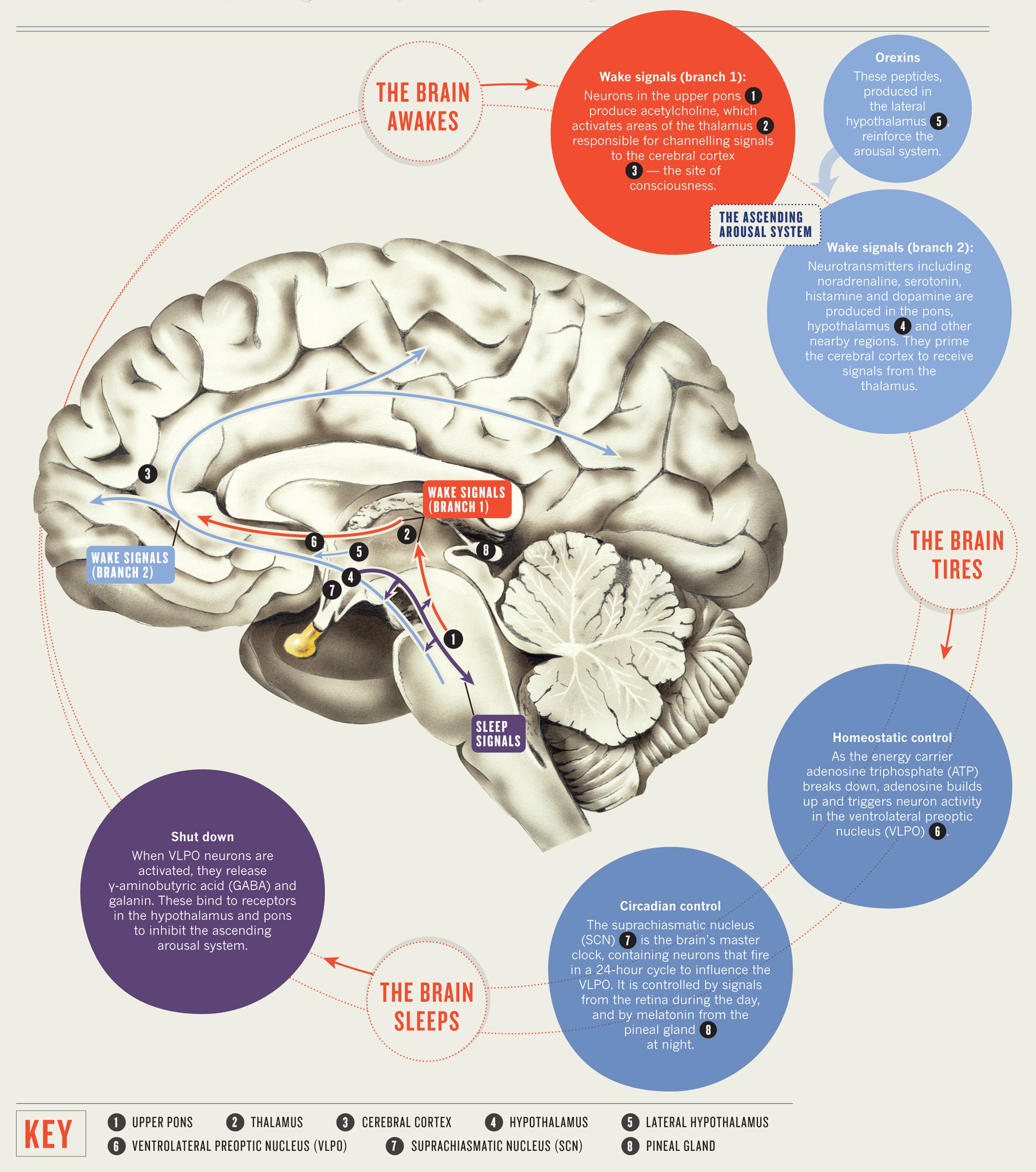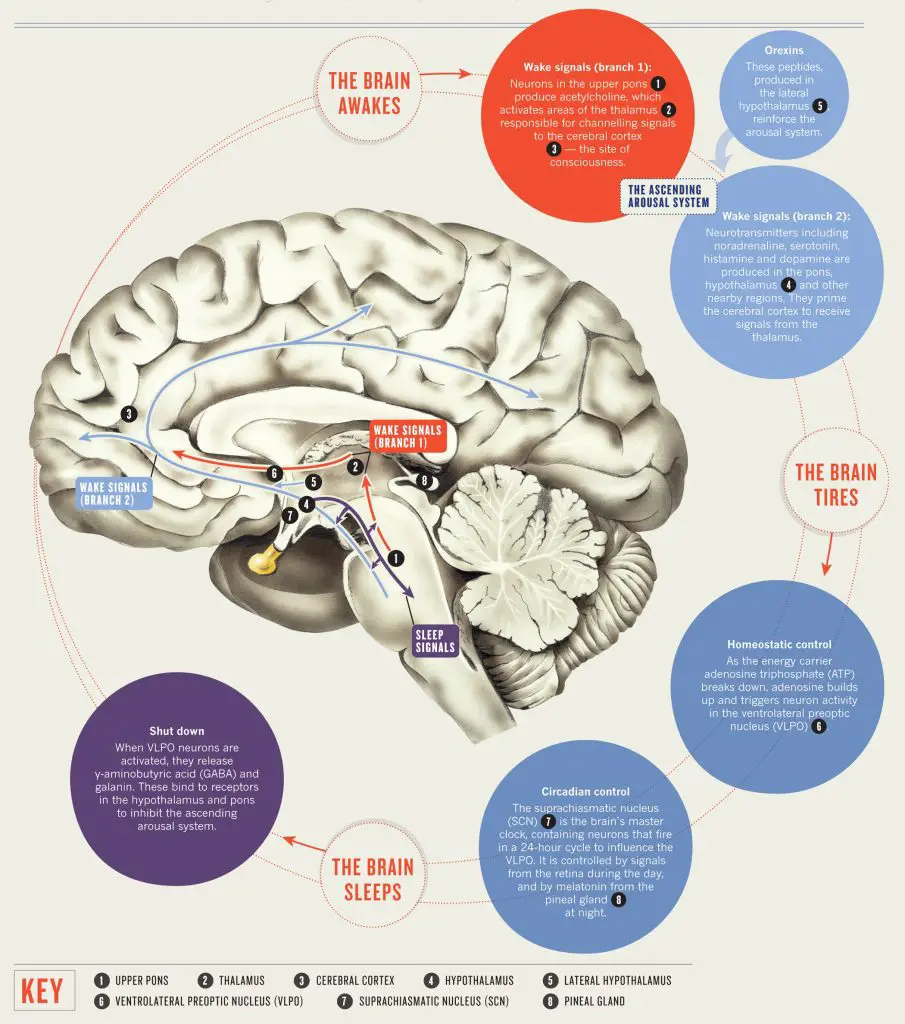Last Updated on March 27, 2023 by Francis
Have you ever wondered what happens to our brains when we sleep? Does it shut down, or does it remain active? In this article, we will explore the answer to this question – does the brain sleep when we sleep? We will look at the science behind this phenomenon and the implications it has for our overall health and well-being. So, if you are curious about the state of your brain when you are sleeping, read on to learn more.

Contents
The Brain Does Not Completely Shut Down During Sleep
Sleep is an essential part of life for all creatures, and humans are no exception. During sleep, the body and mind are able to rest and rejuvenate. But does the brain sleep when we sleep?
The answer is both yes and no. Sleep is not a period of complete unconsciousness, as some may believe. While the brain does slow down significantly during sleep, it does not completely shut down.
In fact, the brain is quite active during sleep. It goes through several stages of sleep on a regular basis. During the deepest stage of sleep, known as REM sleep, the brain is as active as it is during wakefulness.
The Brain Performs Different Tasks During Sleep
Though the brain is not completely shut down during sleep, it does perform different tasks than it does when we are awake. During sleep, the brain is able to consolidate memories and process information. It also plays a role in regulating hormones and body temperature.
The brain is also responsible for dreaming during sleep. Dreams occur during the REM stage of sleep, when the brain is quite active. Scientists are still studying dreams and what purpose they serve.
Sleep Deprivation Can Affect the Brain
It is important to get enough sleep for the brain to function properly. Sleep deprivation can lead to a range of cognitive issues, such as memory problems, difficulty concentrating, and impaired decision-making.
In the long-term, sleep deprivation can have serious consequences for the health of the brain. It can lead to an increased risk of depression, anxiety, and other mental health issues. It can also increase the risk of developing neurological diseases, such as Alzheimer’s.
The Different Stages of Sleep
Sleep is composed of several different stages. The brain progresses through these stages in a cycle, usually taking between 90 and 110 minutes to complete. The stages of sleep are as follows:
Stage 1: Light Sleep
Stage 1, or light sleep, is the first stage of the sleep cycle. During this stage, the brain begins to slow down, and the body temperature drops slightly. This stage usually lasts for five to 10 minutes.
Stage 2: Deep Sleep
Stage 2, or deep sleep, is the second stage of the sleep cycle. During this stage, the brain continues to slow down, and eye movement stops. This stage usually lasts for 20 to 25 minutes.
Stage 3 and 4: Deepest Sleep
Stage 3 and 4, or the deepest stages of sleep, are the third and fourth stages of the sleep cycle. During these stages, the brain is at its slowest, and the body becomes immobile. This stage usually lasts for 25 to 40 minutes.
REM Sleep: Dreaming Sleep
REM sleep, or dreaming sleep, is the fifth and final stage of the sleep cycle. During this stage, the brain is as active as it is during wakefulness, and dreaming occurs. This stage usually lasts for 10 to 25 minutes.
Brain Activity During Sleep
Though the brain does not completely shut down during sleep, its activity does decrease significantly. During each stage of the sleep cycle, the brain performs different tasks. During the lightest stages of sleep, the brain is able to consolidate memories and process information. During the deepest stages of sleep, the brain is at its slowest, and dreaming occurs during the REM stage.
Sleep deprivation can have serious consequences for the health of the brain. It can lead to an increased risk of depression, anxiety, and other mental health issues. It can also increase the risk of developing neurological diseases, such as Alzheimer’s. Therefore, it is important to get enough sleep for the brain to function properly.
Top 6 Frequently Asked Questions
Q1. Does the brain sleep when we sleep?
A1. Yes, the brain does sleep when we sleep, although it does not enter a state of deep sleep like the rest of the body. During sleep, the brain enters a state of restful activity, which helps to restore and repair the body while we rest. During this time, the brain cycles through various stages of sleep, from light sleep to deep sleep, and is largely unresponsive to external stimuli. During deep sleep, brain activity decreases significantly, allowing the body to rest and repair itself. During REM sleep, the brain is still active, but its activity is significantly reduced compared to when we are awake.
What happens in your brain while you sleep?
Sleep is an essential part of our lives, and it is essential for our brains to be able to rest and repair itself. It is clear that the brain does indeed sleep when we sleep, and it is a vital part of the body’s ability to function properly. The brain’s ability to rest and repair itself during sleep is crucial to our overall well-being and is a key factor in our physical and mental health. Therefore, it is important to ensure that we get enough quality sleep in order to maintain our health and well-being.






